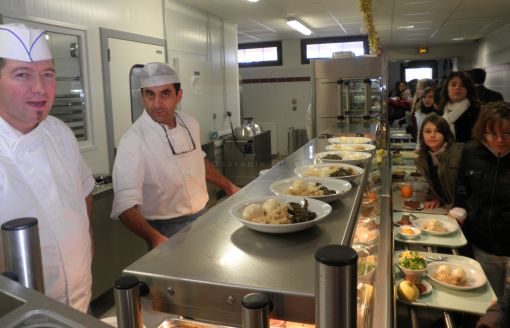Whenever there’s an outbreak of norovirus or some other tummy upset that forces large numbers of students to call in sick, check the bathrooms.
Are the tools for proper handwashing – running water, soap and paper towel – actually available?
And while a report titled, A Response to School Toilets: Best Practice Guidance for Primary and Secondary Schools in Wales, may not make  exciting bathroom reading, continual attention to hygiene basics consistently reduces the numbers of people barfing.
exciting bathroom reading, continual attention to hygiene basics consistently reduces the numbers of people barfing.
Consumer Focus Wales (CFW) made the same point today, arguing that children face an increased risk of contracting and spreading deadly bugs because councils will not be forced to check school toilet hygiene.
As part of the South Wales E.coli public inquiry, Professor Hugh Pennington recommended that every council should have a program of audits to ensure all schools have adequate toilet and handwashing facilities.
Jennie Bibbings, CFW’s senior policy advocate, said: “In the current financial climate school toilets might be a low priority but hygiene standards could suffer and the risk of illness among school children increases.
The public inquiry into the 2005 E. coli O157 outbreak in South Wales heard shocking evidence about the state of school toilets. In some of the schools in the outbreak area there was no running hot water or even soap for children to wash their hands.
Peter Clarke, Wales’ first Children’s Commissioner, had highlighted concerns about the lack of soap and toilet paper in some schools in 2004 – a year before butcher William Tudor caused the E.coli O157 outbreak.
And his successor Mr Towler again highlighted the sub-standard facilities in his third annual report last year.
“Currently I’m seeing inequality across the country with some schools having made considerable improvement while other pupils feel so strongly about it  they refuse to use the toilet during the school day.”
they refuse to use the toilet during the school day.”
Consumer Focus Wales said it should also include standards for staff facilities because successive food hygiene inspection reports have revealed variable performance among school canteens in the provision of hand washing facilities.”


 They have lots of people watching them."
They have lots of people watching them." 19 and 22, 2010, after eating
19 and 22, 2010, after eating .jpg) University of Michigan
University of Michigan .jpeg) The source of original contamination has not been uncovered.
The source of original contamination has not been uncovered. The distributor that provided the contaminated burgers was asked to recall and destroy the entire lot without delay. The meat was apparently imported.
The distributor that provided the contaminated burgers was asked to recall and destroy the entire lot without delay. The meat was apparently imported. and disinfect their hands and forearms, and don color-coded hospital-style scrubs, shoes, hairnets and gloves through the duration of their shift of stay.
and disinfect their hands and forearms, and don color-coded hospital-style scrubs, shoes, hairnets and gloves through the duration of their shift of stay. possible.
possible. Hygiene Centre, who led the research, said,
Hygiene Centre, who led the research, said, percent were out of compliance.
percent were out of compliance.